

Pawnbroking has a long history in Macau, dating all the way back to the late Qing Dynasty. The rapid development of the gaming industry has seen pawnbroking extended to also provide cashback services and money exchange, however with China tightening its capital controls and the COVID-19 pandemic limiting travel, pawnbroking is gradually becoming a sunset industry. IAG invited an employee who worked in a pawnshop for 10 years to provide some insights into the development of the pawnbroking business in that time.
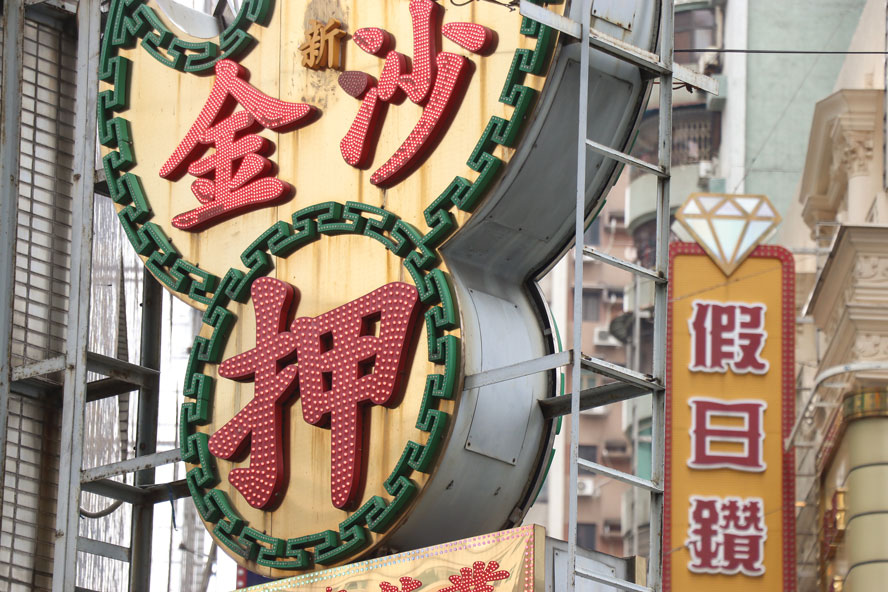 IAG: Thanks for speaking with us John (pseudonym), could you tell us a bit about your background?
IAG: Thanks for speaking with us John (pseudonym), could you tell us a bit about your background?
John: I joined the industry in 2009 when I was still not yet 18 years old, but there was no age limit to work in a pawnshop. In 2009, when the financial crisis was recovering, it was very easy to find a job, especially in a pawnshop. I first started working in a pawnshop nearby MGM Macau, then was moved to another pawnshop in a casino in Cotai. I worked in the pawnshop industry for over 10 years until I left during the pandemic.
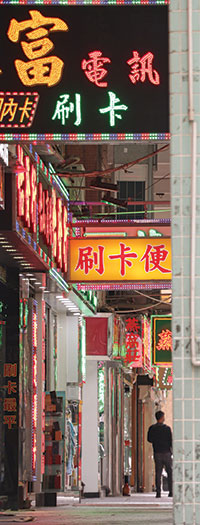 When I worked in a pawnshop, my duties mainly involved pawning and selling expensive items. Basically, pawnshops sell things that rich people like, so many pawnshops have jewelry, expensive clothes and so on. But money exchange and cash back have always been services provided by pawnshops too, at least until the crackdown in recent years stopped it.
When I worked in a pawnshop, my duties mainly involved pawning and selling expensive items. Basically, pawnshops sell things that rich people like, so many pawnshops have jewelry, expensive clothes and so on. But money exchange and cash back have always been services provided by pawnshops too, at least until the crackdown in recent years stopped it.
IAG: What was Macau like in the early days when you began your career in the area?
John: When I started in 2009, things were pretty good. It was the third “bumper harvest period” of Macau. Right after The Venetian Macao opened in Cotai in 2007 and survived the financial crisis in 2009, casinos such as Galaxy and Wynn Palace opened one after another. It was only after the Chinese government pushed hard to combat corruption that things gradually went downhill.
IAG: What is the main business of a pawnshop in Macau? Cash back? The exchange of money? Is pawning one of the main incomes for pawnshops?
John: Cash back and exchanging money is a long-standing service of many pawnshops. Of course, pawnbroking is also a business, but it is a business that requires a lot of experience because they need to check the authenticity of the items pawned by guests. When the economy was good, many pawnshops were actually crying up wine but selling vinegar. They hardly ever did pawn business, it was mainly cash back and exchanging money.
The main reason for this is that after a customer has pawned something, the pawnshop has to wait four months before selling it to other customers. That is, the pawnshop has to wait four months for cash flow. Four months brings too much uncertainty, and cash back can produce immediate benefits, so many pawnshops opt for the latter.
IAG: It is often said that pawnshops must be very profitable. Is this true?
John: At its peak, cash-out by swiping cards can reach MOP$60 million to MOP$70 million (US$7.5 million to US$8.75 million) per day. Therefore, during the peak period, the monthly income of pawnshops could exceed MOP$10 million (US$1.25 million). But it also depends on the location of the pawnshop. Shops close to casinos attract more customers, and those inside casinos do even better.
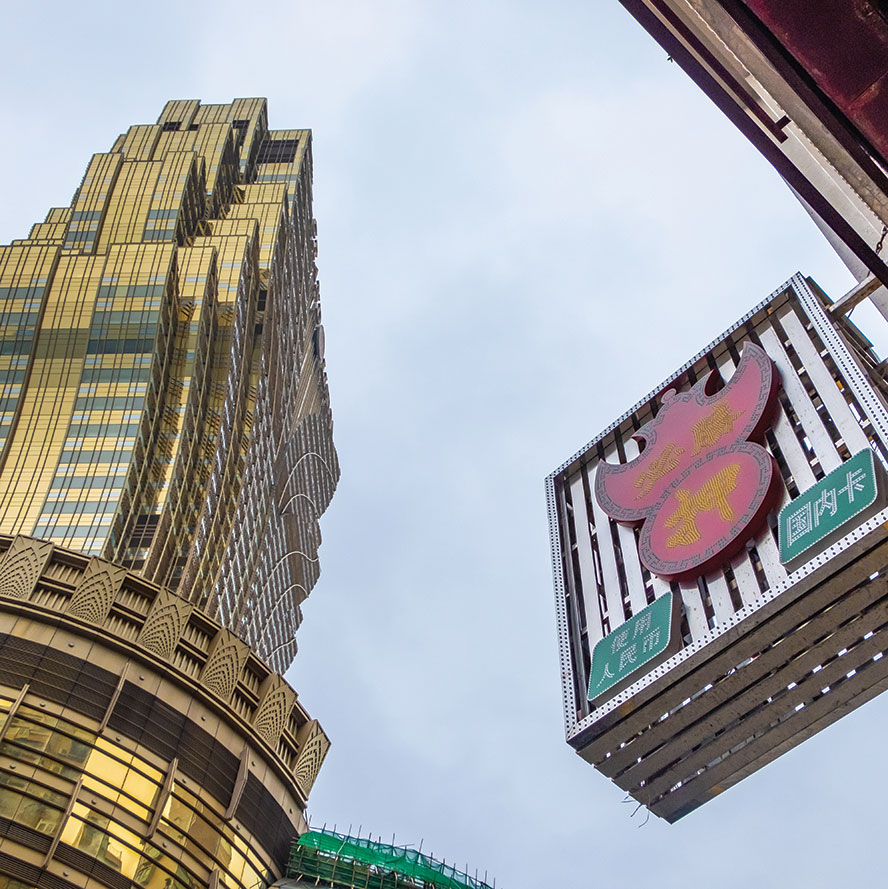 IAG: Ever since 2014, the Macau government has banned the use of POS machines by some merchants in casinos. And in 2017, the government banned the use of POS machines in all pawnshops. What was the impact on the industry?
IAG: Ever since 2014, the Macau government has banned the use of POS machines by some merchants in casinos. And in 2017, the government banned the use of POS machines in all pawnshops. What was the impact on the industry?
John: The government banned pawnshops in casinos from using POS machines in 2014 to prevent them from offering cash back services.
The ban on the use of POS machines did have a significant impact on the industry, but at the same time, the number of illegal money exchanges has risen. Though what the pawnshops have done cannot be 100% legal, since the crackdown there have been more people who take risks and operate in that “gray area” – taking money from underground banks and exchanging with gamblers.
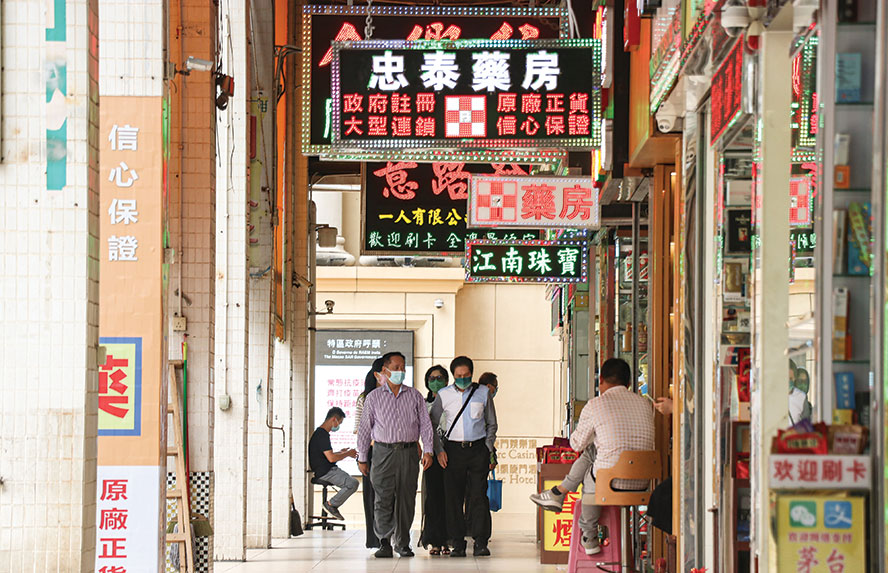 For example, if a gambler loses a lot of money and wants to get some cash back, he could use a pawnshop to swipe his cards, but since this service is banned, the gambler can only seek help from illegal money exchanges, which are more difficult to monitor than the pawnshops. Sometimes fake POS machines were used to defraud gamblers, and this caused more crime.
For example, if a gambler loses a lot of money and wants to get some cash back, he could use a pawnshop to swipe his cards, but since this service is banned, the gambler can only seek help from illegal money exchanges, which are more difficult to monitor than the pawnshops. Sometimes fake POS machines were used to defraud gamblers, and this caused more crime.
IAG: With increasing capital control in China, is there less room for pawnshops?
John: Actually, the whole gambling revenue is affected, not just the pawnshops. Ever since 2019, there have been a lot of tourist arrivals, but gaming revenues have begun to slow down, which is already an indication of the impact of capital controls.
But to be frank, many pawnshop owners are well aware that businesses such as cash back are not sustainable.
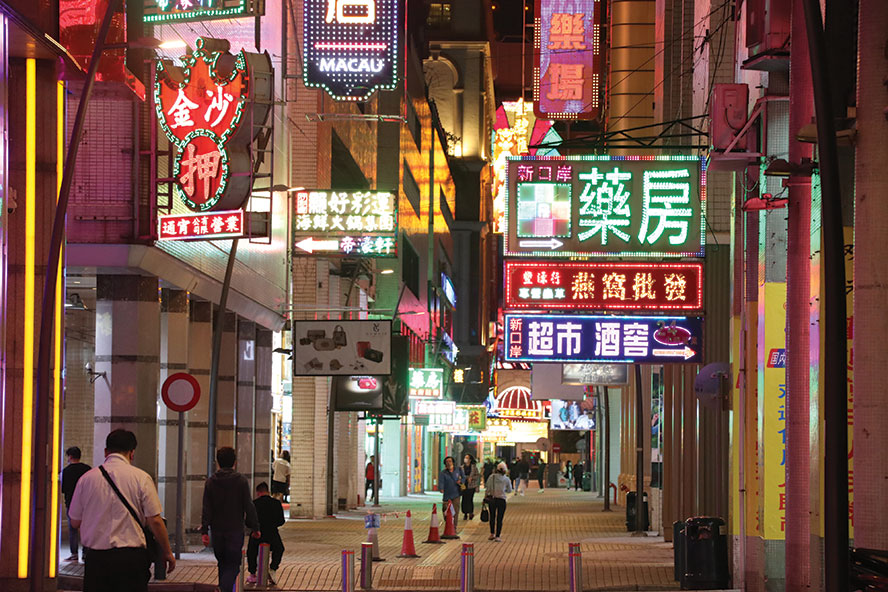 They have moved on to other business after making their money – some of them became bosses of VIP rooms, some even became satellite casino owners. Therefore, capital control has had a certain impact on the pawnshop industry, but it cannot be said to be too serious.
They have moved on to other business after making their money – some of them became bosses of VIP rooms, some even became satellite casino owners. Therefore, capital control has had a certain impact on the pawnshop industry, but it cannot be said to be too serious.
IAG: The survival of pawnshops is highly dependent on casinos, but COVID-19 has had a severe impact on the gaming industry. Is there still room for pawnshops?
John: Not too much. Following the impact of COVID-19 and things that happened to satellite casinos, amongst others, many pawnshops are closed and will not reopen. Take a look at those pawnshops in NAPE. In the past, their rent for one month was close to MOP$1 million (US$125,000), but now the owners are willing to reduce rents and many of them have already closed. Some of the pawnshops remain open simply because they have too much inventory, or the owners of those shops have other businesses and don’t care much about the pawnshop business.
 In my opinion, many pawnshops rely on gamblers for their livelihood, and that is not sustainable. I have left the pawnshop business and I am not optimistic about the recovery and am pessimistic about the overall economy.
In my opinion, many pawnshops rely on gamblers for their livelihood, and that is not sustainable. I have left the pawnshop business and I am not optimistic about the recovery and am pessimistic about the overall economy.
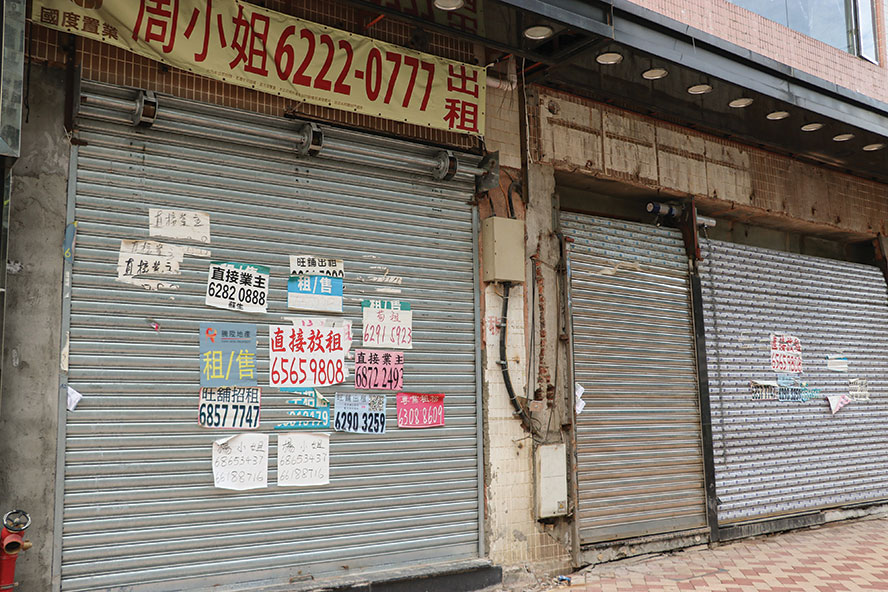 IAG: What do you think of the future of pawnshops?
IAG: What do you think of the future of pawnshops?
John: Pawnshops are an industry of great historical value. The earliest pawnshops in Macau were for the poor people to do business and gave them the opportunity to pawn their goods for money. They were not purely commercial in nature. I think pawnshops like those which only do pawning business with ordinary people will last for a long time. Those pawnshops that do not rely on gaming can survive, but those that do are almost finished.

The post Into the Sunset appeared first on IAG.
Read Rhis 👉 新聞來源
——
博彩新聞 Gambling Inside News
https://t.me/GamblingInsideNews
——
via Adam Qain AceBqj7s
#香港 #HKG 🇭🇰
#IAG
#亞博匯
留言
張貼留言